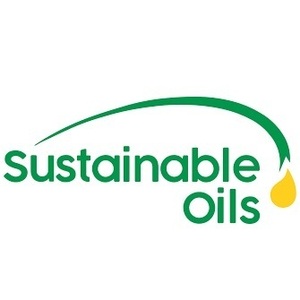Sustainable Oils to develop camelina varieties via gene editing

August 9, 2022
BY Sustainable Oils Inc.
Sustainable Oils Inc., a wholly owned subsidiary of Global Clean Energy Holdings Inc., an ultra-low carbon renewable fuel company that will use nonfood camelina as their primary fuel source material, on Aug. 8 announced a joint licensing agreement with Corteva Agriscience and the Broad Institute of MIT and Harvard for CRISPR-Cas9 and related gene editing tools to further develop their patented camelina varieties.
Under the agreement, Sustainable Oils has the ability to use the technology to create targeted changes to camelina DNA and incorporate desirable new traits such as high oil yield, quick maturity, herbicide tolerance, drought tolerance, and other desirable traits. The technology is expected to result in shorter development timelines and lower costs than traditional breeding methods.
“We are excited to add CRISPR-Cas9 technology to accelerate our camelina breeding practices,” Jerry Feitelson, chief scientific officer of Sustainable Oils said. “Using this powerful plant breeding innovation, we expect to further expand our IP portfolio of advanced camelina varieties, which is already the largest in the world. Through state-of-the-art breeding methods, optimal agronomic advances, and large-scale logistics we hope to drive the carbon intensity of our finished fuels close to or below zero.”
For more information on the Broad Institute, visit www.broadinstitute.org.
Advertisement
Advertisement
Advertisement
Advertisement
Related Stories
The USDA significantly increased its estimate for 2025-’26 soybean oil use in biofuel production in its latest World Agricultural Supply and Demand Estimates report, released July 11. The outlook for soybean production was revised down.
The U.S. Energy Information Administration maintained its forecast for 2025 and 2026 biodiesel, renewable diesel and sustainable aviation fuel (SAF) production in its latest Short-Term Energy Outlook, released July 8.
XCF Global Inc. on July 10 shared its strategic plan to invest close to $1 billion in developing a network of SAF production facilities, expanding its U.S. footprint, and advancing its international growth strategy.
U.S. fuel ethanol capacity fell slightly in April, while biodiesel and renewable diesel capacity held steady, according to data released by the U.S. EIA on June 30. Feedstock consumption was down when compared to the previous month.
XCF Global Inc. on July 8 provided a production update on its flagship New Rise Reno facility, underscoring that the plant has successfully produced SAF, renewable diesel, and renewable naphtha during its initial ramp-up.
Upcoming Events










